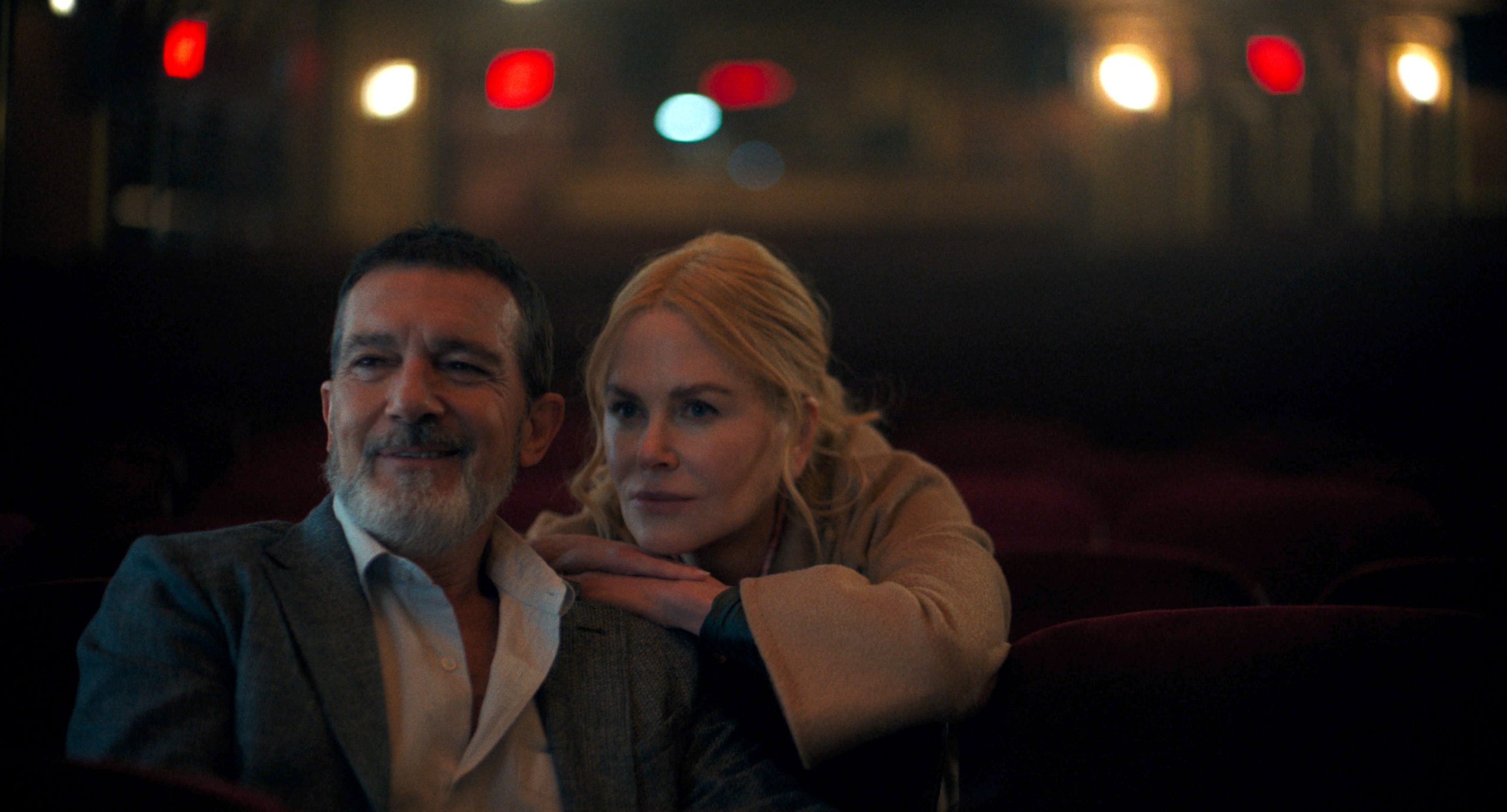“Babygirl,” directed by Halina Reijn, is a daring exploration of power dynamics, desire, and the thin line between control and chaos in the corporate world. Starring Nicole Kidman as Romy, a high-powered CEO with a seemingly perfect life, the film delves into the depths of forbidden attraction and the consequences that follow.
Romy is the epitome of success: a thriving career leading Tensile Automation, a supportive husband (Antonio Banderas), and two bright teenage daughters. Beneath this polished exterior, however, lies a restless yearning for something more primal and untamed. This hidden desire manifests in clandestine moments, like when she retreats to indulge in taboo fantasies that starkly contrast her controlled public persona.
Enter Samuel, portrayed by Harris Dickinson, a young and audacious intern who challenges Romy’s authority with unsettling ease. Their initial encounters are charged with tension not born from overt flirtation but from Samuel’s brazen defiance and disruptive inquiries. His unwillingness to adhere to corporate niceties intrigues Romy, igniting a spark that threatens to consume the carefully constructed life she leads.
Nicole Kidman delivers a fearless performance, navigating Romy’s internal conflict with remarkable nuance. She embodies a woman torn between her responsibilities and her repressed desires, making choices that are as unsettling as they are compelling. Dickinson’s Samuel is enigmatic and unapologetically bold, serving as both a catalyst for Romy’s unraveling and a mirror reflecting her own suppressed impulses.
Reijn’s direction is sleek and unflinching, capturing the sterile elegance of the corporate environment while juxtaposing it with the raw intimacy of Romy and Samuel’s clandestine encounters. The film doesn’t shy away from explicitness but approaches its erotic scenes with a focus on the psychological interplay rather than mere titillation.
“Babygirl” attempts to comment on the modern workplace, the isolation that can come with success, and the human craving for genuine connection in an increasingly impersonal world. It touches on relevant themes such as the ethical boundaries of power, consent, and the repercussions of crossing professional lines.
However, despite its ambitious intentions and strong performances, the film falls short in fully engaging the audience. The narrative sometimes feels disjointed, and certain plot developments seem forced to heighten the drama rather than arising organically from the characters’ journeys. The supporting characters, including Banderas’s role as Romy’s husband, are underdeveloped, leaving gaps in the emotional landscape of the story.
Moreover, while “Babygirl” strives to delve deep into the psyche of its protagonist, it occasionally skims the surface of the complex issues it raises. The exploration of Romy’s inner turmoil could have been more profound, offering greater insight into her motivations and the societal pressures she faces.
Having watched “Babygirl” at the Venice Film Festival, I found it to be a bold and intriguing film that sparks conversation but doesn’t quite leave a lasting impact. It presents a provocative premise and showcases Nicole Kidman in a role that pushes boundaries, yet it doesn’t fully capitalize on its potential to be a standout piece. Amidst the array of remarkable films showcased at Venice this year, “Babygirl” wasn’t among my favorites, but it is nonetheless a noteworthy addition to the festival’s diverse lineup, offering a thought-provoking look at desire and the complexities of human relationships in the modern age.
